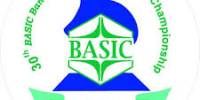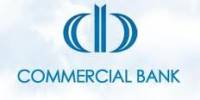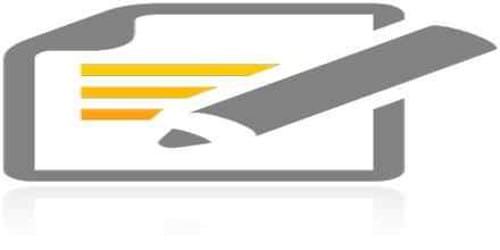1.1 Introduction of Topic
This internship is a part of the Bachelor of Business Administration (BBA) program that provides an on-the-job experience to students. I was placed at Trust Bank Limited, Dhanmondi Branch as an internee officer for three months. This internship program was my very first on-the-job exposure and provided me with learning experience and knowledge in several areas. During the first few weeks of my internship period, I was able to get accustomed to the working environment of Trust Bank Limited. As the internship continued, I not only learned about the activities and operations of correspondent Bank, but I also gathered some knowledge about the basic business activities of banking in first one-month of my internship period.
Generally, by the word “Bank” we can easily understand that the financial institution deals with money. But there are different types of banks such as; Central Banks, Commercial Banks, Savings Banks, Investment Banks, Industrial Banks, Co-operative Banks etc. But when we use the term “Bank” without any prefix, or qualification, it refers to the ‘Commercial banks’. Commercial banks are the primary contributors to the economy of a country. Therefore, we can say Commercial banks are a profit-making institution that holds the deposits of individuals & business in checking & savings accounts and then uses these funds to make loans. Both general public and the government are dependent on the services of banks as the financial intermediary. As, banks are profit-earning concern; they collect deposit at the lowest possible cost and provide loans and advances at higher cost. The differences between two are the profit for the bank.
A company can increase efficiency through a number of steps. These include : exploiting economies of scale and learning effects, adopting flexible manufacturing technologies, reducing customer defection rates, getting R&D function to design products that are easy to manufacture, upgrading the skills of employees through training, introducing self-managing teams, linking pay to performance building a companywide commitment to efficiency through strong leadership, and designing structures that facilitate cooperation among different functions in pursuit of efficiency goals.
Efficacy of customer service is related with progression of operation. We can identify the efficacy of customer service by studying the progress of “Trust Bank Ltd.” from starting to at present. The progress of “Trust Bank Ltd.” is very rapid with the concern of its profit making and growth of its operation within the country towards the country’s economy.
The Trust Bank Limited pursues decentralized management policies and gives adequate work freedom to the employees. This results in less pressure for the workers and acts as a motivational tool for them, which gives them, increased encouragement and inspiration to move up the ladder of success. Overall, I have experienced a very friendly and supporting environment at the Trust Bank Limited, which gave me the pleasure and satisfaction to be a part of them for a while. While working in different departments of this branch I have found each employee too friendly to us to cooperate. They have discussed in details about their respective tasks. I have also participated with their works.
1.2 Rationale of the Study
The internship program is very helpful to bridge the gap between the theoretical knowledge and real life experience as part of Bachelor of Business Administration (BBA) program. This internship report has been designed to have a practical experience through the theoretical understanding.
Internship program is essential for every student, especially for the students of Business Administration, which helps them to know the real life situation. For this reason, a student takes the internship program at the last stage of the degree, to launch a career with some practical experience. As a Complete fulfillment of Internship Program, introduce the students with the real life business situation.
This report is a part of my academic program. The internship program has been set for three (3) months period at “Trust Bank Ltd” as a part of my BBA program. In our BBA Program all courses based on theoretical and we have to learn practically. The program has helped me a lot to understand the organizational atmosphere and behavior and I gather some practical Knowledge about “General Banking Operation of The Trust Bank Ltd.”
1.3 OBJECTIVE:
The objective of this report is to complete the partial fulfillment requirement of the BBA program by gathering practical knowledge regarding banking system and operation in the form of a research study. This practical orientation gives me a chance to co-ordinate my theoretical knowledge with the practical experience.
1.3.1 Broad objectives:
Gathering practical knowledge regarding banking system, operation and implementation of the theoretical knowledge.
1.3.2 Specific Objective:
- To present an over view of The Trust Bank Ltd
- To apprise principal activities of The Trust Bank Ltd
- To apprise principal activities of The Trust Bank Ltd
- To evaluate performance of The Trust Bank Ltd
- To identify problems of The Trust Bank Ltd
- To recommend suggestion for the development of the Trust Bank Ltd.
1.4 Scope of the Report
This internship report covers all the trade related products handled by the “The Trust Bank Ltd.” such as Foreign Exchange, Cash Dept., Dispatch, Account Opening, Remittance, Accounts, Administration and Loans & Advances etc.
This report has been prepared through extensive discussion with bank employees and with the customers. While preparing this report, I had a great opportunity to have an in depth knowledge of all the banking activities practiced by the “The Trust Bank Ltd.” It also helped me to acquire a first hand perspective of a leading private Bank in Bangladesh
1.5. METHODOLOGY OF THE STUDY:
This study is based on a theoretical knowledge, field survey and practical orientation. This is a survey work in the form of research study. In order to make the Report more meaningful and presentable, two sources of data and information have been used widely. These are both primary and secondary data.
The primary sources are :
# Direct communication with the clients.
# Exposure on different desk of the bank
# File study.
# In depth interview
The secondary sources are:
# Annual report of the Trust Bank Ltd .
# Periodicals published by the Bangladesh Bank.
# Different publications regarding banking functions , foreign exchange operation, and credit policies
1.6 Conceptual Framework of the Report:
1.7 MODEL USED:
The performance evaluations of the TBL have been conducted based on the trend analysis.
Trend Analysis: In the report trend analysis has been used in order to indicate the changes in the level of progress and growth over the last three years starting from 2003. It would show whether the present growth trend of the TBBL is excellent, good, satisfactory or bad.
1.8 Limitations:
The present study was not out of limitations. But it was a great opportunity for me to know the banking activities of Bangladesh specially “Trust Bank Ltd.” Some constraints are appended bellow–
- The main constraint of the study is inadequate access to information, which has hampered the scope of analysis required for the study. As it is a new bank it could not start all its operation, it was unable to provide some formatted documents data for the study.
- Due to time limitations, many of the aspects could not be discussed in the present report.
- Every organization has their own secrecy that is not revealed to others. While collecting data i.e. interviewing the employees, they did not disclose much information for the sake of the confidentiality of the organization.
- Another problem is that creates many confusions regarding verification of data. In some cases more than one person were interviewed to clarify each concept as many of the bankers failed to provide clear-cut idea about the job they perform.
- The clients were too busy to provide me much time for interview.
- I have had no opportunity to compare the general banking system of the TBBL with that of other contemporary and common size banks. It was mainly because of the shortage of time and internship nature.
CAPTER2. ORIENTATION TO THE ORGANIZATION
2.0 ORIENTATION TO THE ORGANIZATION:
Trust Bank Ltd. is a private, commercial, scheduled Bank, which obtained license from Bangladesh Bank on July 15, 1999. Presently Army Welfare Trust is the major shareholder. The authorized capital of the Bank is Taka two thousand million and paid-up capital of Taka five hundred million. Public shares are expected to be floated in the near future. The Bank was formally inaugurated and listed as a scheduled bank on November 1999.
The idea of setting up a Bank by Bangladesh Army was first conceived in 1987 and on November 29, 1999 the first branch of the Trust Bank Ltd came into operation
Composition of the Board of TBL consists of Ex-officio Directors of in-service senior Army personnel, with the Chief of Army Staff as its Chairman and the Adjutant General as its Vice-Chairman.
Trust Bank Ltd. having a spread network of 23 branches across Bangladesh and plans to open few more branches to cover the important commercial areas in Dhaka and other areas in 2007. The Bank sponsored by the Army Welfare Trust (AWT), is first of its kind in the country with a wide range of modern corporate and consumer financial products. Trust Bank Ltd. has been operating in Bangladesh since 1999 and has achieved public confidence as a sound and stable Bank.
In addition to ensuring quality, Customer services related to general banking the bank also deals in Foreign Exchange transactions. In the mean time, the bank has extended credit facilities to almost all the sector of the country’s economy. The bank has plans to invest extensively in the country’s industrial and agricultural sectors in the coming days.
It has also plans to promote the agro-based industries of the country. The bank has already participated in syndicated loan agreement with other banks to promote textile sectors of the country. Such participation would continue in the future for greater interest of the overall economy. Keeping in mind the client’s financial and banking needs the bank is engaged in constantly improving its services to the clients and launching new and innovative products to provide better services towards fulfillment of growing demands of its customers.
2.1 Nature of Business:
The Trust Bank Ltd offers full range of banking services that include:-
- Deposit banking
- Loans & advances
- Export
- Import
- Financing inland
- International remittance facilities
The bank offers a full scale commercial banking includes:–
- Foreign Exchange transactions
- Personal
- Credit
- Consumer & Corporate Banking
2.2. Vision Statement of “Trust Bank Limited”:
- To build a sustainable and respectable financial institution.
- To be a leading Commercial Bank, with a social focus, assisting in the economic development of the country.
- The Profit of the bank used for the Socio-economic development of the members of the Bangladesh Army and thereby the nation as a whole.
2.3. Mission Statement of “Trust Bank Limited”:
- Achieving sound and profitable growth in assets and liabilities, with focus to maintain non-performing assets at acceptable levels.
- To build long-lasting, credible and mutually dependable relationships with customers.
- Efficiently managing interest and operating costs.
- To excel in rendering superior customer service.
- To be the preferred employer among Banks in Bangladesh
CAPTER3. Topic Analysis and Description
3.0. Dispatch Department:
Dispatch is one of the primary departments of banking activities. Dispatch can be categorized into two parts:
3.0.1 Inward Register
3.0.2 Outward Register – (a) By Courier
(b) By Post
3.0.1 Inward Register
In inward register all the incoming documents are received and registered according to date. Then, documents are transferred to different departments according to their destiny.
3.0.2 Outward Register
The documents, which are needed to mail to different branches of TBL in Bangladesh or outside Bangladesh, are registered in outward register and mailed by courier or by post, which one is suitable.
3.1.Cash Department:
- Opening of Cash: Beginning balance is used to start daily transaction.
- Maintenance of Receipt and Payment Registers while receiving & paying
different amount of cash.
- Previously issued cheque will be paid if issued 6 months before.
- Advance issued cheque cannot be made payment even one day before.
- Evening Banking: can only receive cash. No payment can be made except
some special cases.
- TBL Dhanmondi Branch provides “Sheba Service” in this branch
- Issue Note: Notes issued by the bank & accepted by the people, fresh
notes.
- Non-issue Note: Notes cannot be issued for public like torn, mutilated
notes Soiled Notes etc.
3.3 Deposits Department:
Payment through Cash
Clients give their cheques with their signatures. These signatures are justified with specimen signature cards. If these signatures are correct, then A/C numbers are posted into the computer and required balances are given to them after checking that they have sufficient balance in their accounts.
Payment through Transfer
This transfer is made through account to account, not in cash.
Payment through Clearing House
Payment is made through clearing house. In this case the parties are account holders different banks. The clearing-house in Bangladesh bank makes the clearing tasks in working day where the representatives of every scheduled bank are present there to collect their own banks’ cheques.
- Objections to unpaid cheques
- When cheques are returned from clearinghouse, they mention the cause of
returning. TBL Return memo includes the following causes:
(A) Insufficient Fund
(B) Not arrange for.
(C) Effects not cleared, may be presented.
(D) Exceed arrangements.
(E) Full Cover Not Received.
(F) Payment stopped by drawer.
(G) Payee’s endorsement irregular\ illegible\ required.
(H) Payee’s endorsement irregular, required bank’s confirmation.
(I) Drawers, signature differs/ required.
(J) Alterations in date/ figures/ words require drawer’s full signature.
(K) Cheque is post dated/ out of date/ mutilated
(L) Amount in words and figure differs
(M) Crossed cheque must be presented through a bank
(N) Clearing stamp required/ requires cancellation.
(O) Addition to bank discharge should be authenticated
(P) Cheque crossed “Account, Payee Only”.
(Q) Collecting Bank’s discharge irregular/ required.
2. After returning of cheque the cause is notified to the client to take necessary
action.
3. Also the vouchers are made reversal after returning of cheque i.e. Bills lodged
debited and Bills for collection credited.
- Closing of Account & Disposal of Unutilized Cheque:
- Application to the manager for closing the account
- Bank takes Tk.50 as closing charge
- The application form and specimen sign card is marked as closed
- The customer has to submit any unutilized portion of cheque and bank will destroy these.
3.4 Remittance & Bills Department:
Remittance & bills section plays a very vital role in case of Banks Customer Service Section. Roles & Responsibilities of remittance section knows no bound. The activities of Remittance & Bill sections are:
- Issue and payment of Pay Order, Pay Slip, Demand Draft, SDR etc.
- Execution of Inward and Outward Telegraphic Transfer
- Non client services like T.T. and Pay Order
- Follow up with clients
- Internal and local collection of cheque and bills
In case of collecting DD, P0, PS following things are to be carefully check:
- Instrument of TBL
- Crossing Seal
- Clearing Seal
- Branch Name
- Amount same in word & figure
- Signature verification
- Avoid the stop order PO, DD
- Test key verification. Every TT must have test key. DD over Tk.50000/ must have test key
- Maintenance of PO/TT/DD issue & payable books
- Balancing at the end of the month.
3.5. Products:
3.5.1. Deposit Products:
- Current Deposit Account
- Savings Deposit Account (interest calculated on monthly minimum balance of Tk.2000 and above)
- Fixed Deposit (3 months to 3 years term)
- Savings Certificate
- Trust Smart Savers Scheme(TSS)
- Trust Double Profit Scheme(TDPS)
- Trust Money Making Scheme(TMMS)
- Trust Education Scheme(TES)
- Corporate Financing
- Trust Consumer Durable Scheme (TCDS)
- Trust Marriage Loan Scheme (TMLS)
- Trust Car Loan Scheme (TCLS)
- Trust House Building Loan Scheme (THLS)
- Trust Micro Credit for Renovation & Reconstruction of Dwelling Houses
3.5.2 Investment Products:
3.5.3 International Trade:
- International Banking
- Private Foreign Currency Accounts
- Non Resident Foreign Currency Deposit Account
- Resident Foreign Currency Deposit Account
- Travelers’ Endorsement (Cash and Travelers Cheque)
- Remittance of Foreign Currency
- Import and Export Transaction
- Foreign Exchange Dealing
- Purchase of Foreign Currency Drafts, Cheques, Travelers Cheques
- Wage Earner’s Development Bond
3.5.4 Others:
- Trust Locker Service (TLS)
- Trust Tele Banking
3.6 Account Opening Department:
A bank has to maintain different types of accounts for different purposes. Trust Bank limited (TBL) offers the general deposit products in the form of various accounts.
3.6.1. Savings Account:
Savings bank deposit is popular account maintained in Banks. The different matters relating SB account are described in the following discussion. The summary of the rules and regulations to open a savings account is as follows:-
- Any person or persons of more than 18 years having sound mind can open and operate this account singly or jointly.
- In case of a minor (a person below 18 years), a guardian can open and operate this account on his or her behalf.
- Clubs, Societies, Sole Proprietorship firms, Partnership firms, Limited Companies either public or private and other similar organization are eligible to open such account.
- More than one account cannot be opened in the same name.
- A minimum initial deposit of Tk. 500.00 is required to open such account.
- Money will be withdrawn through cheques. Withdrawal cannot be more than twice a week and generally the amount will not be more than 25% of the balance available, subject to maximum Tk. 20,000.00.
- In case of closure of any account, the bank deducts Tk. 100.00 as closing charge.
3.6.2. & 3.6.3. Current Account AND Short Term Deposit (STD) Account:
Most businessmen maintain Current Deposit accounts in order to make their daily business activities. This account’s funds change most frequently than any other accounts because customers use to withdraw and deposit funds in regular basis. The summary of the rules and regulations to open a current account & short term deposit (STD) account as follows:-
- A minimum deposit of Tk. 1000.00 is needed to open a current account.
- The bank charges an incidental charge of Tk 50.00 for every six (6) months for the maintenance of the account.
- In case of the closure, the bank charges Tk. 100.00 as closing charge of the account.
- Withdrawal of money is allowed only through the leaves of the cheque book issued by the bank.
3.6.4 Fixed Deposit Account:
The bank allows people to keep their idle money secured and profitable as Fixed Deposit. The interest rate that the bank offers to the fixed depositors is as follows:
| SL No | Amount or Slab wise Deposit | Interest rate on Deposit: Maturity wise but based on amount | |||
| 1 Month | 3 Months | 6 months | 1 Year and above | ||
| 01. | Any amount but less than Tk 5 crore. | 11.00% | 11.25% | 12.00% | 12.00% |
| 02. | Tk 5 crore & above but less than Tk. 10 crore. | 11.00% | 11.25% | 12.00% | 12.00% |
| 03. | Tk 10 crore & above but less than Tk. 25 crore | 11.00% | 11.25% | 12.00% | 12.00% |
| 04. | Tk. 25 crore and above | 11.00% | 11.25% | 12.00% | 12.00% |
| * Subject to 10% government tax on interest earnings. | |||||
The Bank deducts the Excise duty, the compulsory levy of the government, on the interest earnings in the following structure:
| Minimum Deposit | Maximum Deposit | Excise Duty |
| 10,001 | 1,00,000 | 120.00 |
| 1,00,001 | 10,00,000 | 250.00 |
| 10,00,001 | 1,00,00,000 | 550.00 |
| 1,00,00,001 | 5,00,00,000 | 2500.00 |
| 5,00,00,001 | 99,99,99,99,999 | 5000.00 |
- FDR Block
A receipt, given to the applicant after opening the FDR account, will show it after maturity to take his money back.
- Specimen Card:
The signature of the FDR account holder is maintained in the specimen card.
- Closure:
After payment at maturity period the FDR account is closed. The FDR account holder must surrender his FDR receipt during the payment. It is to notify that in case FDR, the bank entries the full amount at maturity date in advance when a customer opens a FDR account. After the maturity FDR receipt and FDR form are attached together and on the front page of the FDR form bank authority writes “Close of FDR account” and gives entry in the ledger.
3.6.4.1. PRE REQUISITE OF OPENING AN ACCOUNT:
To open a savings, current, STD account, the following documents are mandatory:
a) FOR INDIVIDUAL ACCOINT:
- Two copies of Passport size Photograph of the Clients (Attested by introducer or Verified with Passports)
- Passports/ Nationality Certificate/ Employer’s Certificate of the Proprietor.
- Customer Profile.
- Transaction Profile.
- Photograph of the Nominee(s) attested by the account holder.
- TIN Certificate.
b) FOR JOINT ACCOUNT:
- Passports/ Nationality Certificate/ Employer’s Certificate of the Proprietor.
- Customer Profile.
- Transaction Profile.
- Photograph of the Nominee(s) attested by the account holder.
- TIN Certificate.
- Relationship between the account holders.
- Purpose of opening of the Joint account.
c) FOR PROPRIETORSHIP ACCOUNT:
- Two copies of Passport size Photograph of the proprietor
(Attested by introducer or Verified with Passports)
- Passports/ Nationality Certificate/ Employer’s Certificate of the Proprietor.
- Customer Profile.
- Transaction Profile.
- Photograph of the Nominee(s) attested by the account holder.
- TIN Certificate.
- Trade License.
- VAT Registration (if available)
d) FOR PERTNERSHIP CONCERN:
- Two copies of Passport size Photograph of each partner(Attested
by introducer or Verified with Passports)
- Passports/ Nationality Certificate.
- Company Profile.
- Transaction Profile of the concern.
- Personal Profile of the partners.
- Photograph of the Nominee(s) attested by the account holder.
- TIN Certificate.
- Trade License of the concern.
- VAT Registration (if available)
- Relationship between the partners.
- Attested Photocopy of the Partnership Deed (Deed on Tk 1000.00
stamp)
- Resolution regarding opening and operation of the account.
e) FOR COMPANY ACCOUNT:
- Attested or Certified copy of the Memorandum and Articles of
Association.
- Certificate of Incorporation.
- Certificate of Commencement of Business.
- Two copies of Passport size Photograph of all Directors (Attested
by introducer or Verified with Passports)
- Passports/ Nationality Certificate of all Directors of the company.
- Company Profile.
- Transaction Profile of the company.
- Personal Profile of all Directors as per enclosed sheet in the
company’s letterhead pad.
- TIN Certificate.
- Trade License.
- VAT Registration (if available).
- Board resolution of the company regarding opening and operation of the account.
f) FOR PRIVATE SCHOOL/COLLEGE/MADRASA:
- Attested or Certified copy of the Constitution.
- Registration Certificate.
- List of all Executive Members (as per enclosed format).
- Two copies of Passport size Photograph of the account operators (Attested by introducer or Verified with Passports)
- Passports/ Nationality Certificate of the account operators.
- Personal Profile of all members of the governing body and Managing Committee.
- Board resolution regarding opening and operation of the account.
g) FOR NGO/ CLUB-SOCIETY/CO-OPERATIVE ACCOUNT:
- Registration Certificate from the Joint Stock Company/ Ministry of Social Welfare.
- List of all Executive Members (as per enclosed format).
- Board resolution as per Memorandum regarding opening and operation of the account.
- Attested or Certified copy of the Constitution/Bylaws.
- Two copies of Passport size Photograph of all Members (Attested by introducer or Verified with Passports)
- Passports/ Nationality Certificate of all Members.
- Profile of the Firm.
“No Objection Certificate” from the Ministry of Social Welfare.
















